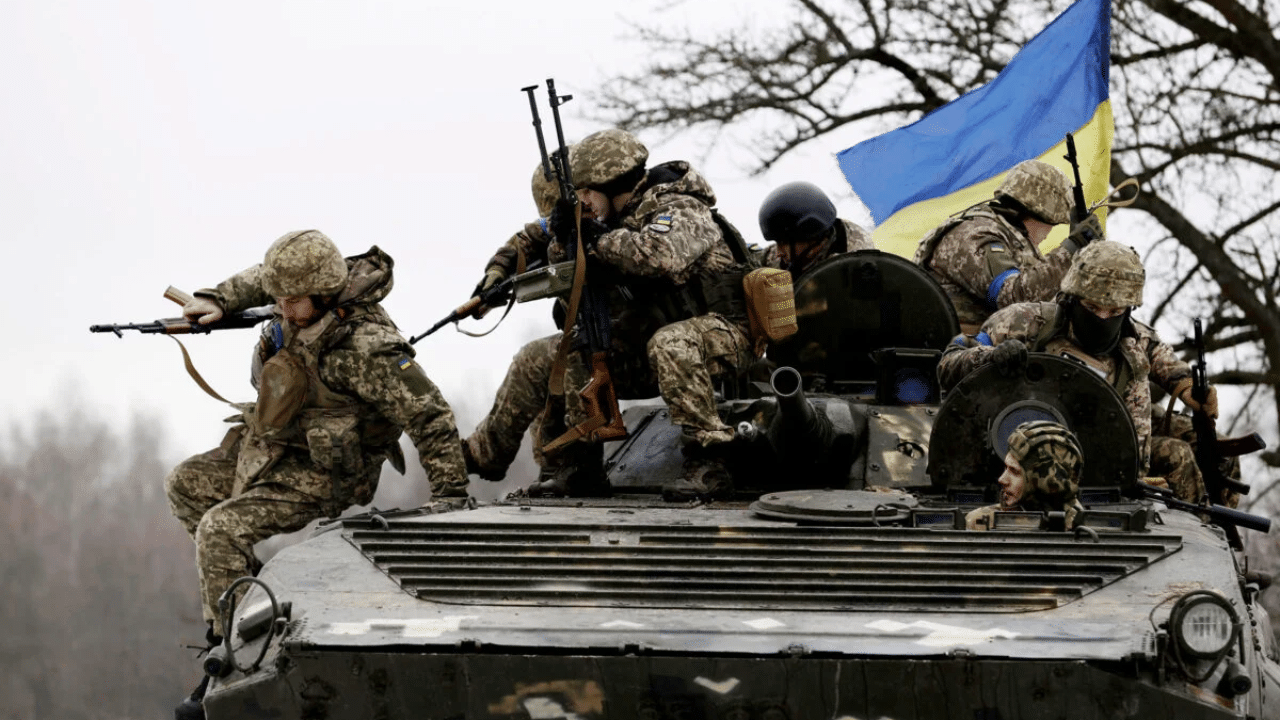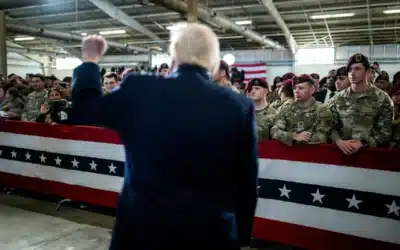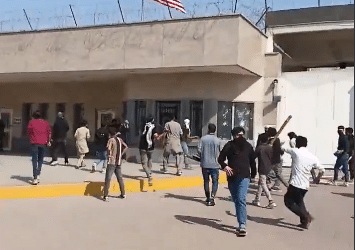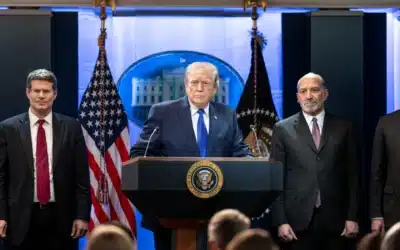Kiev’s war goals have changed from “survival to victory,“ according to a top Ukrainian defense official. The country’s aims have grown increasingly ambitious as its Western backers continue to provide billions of dollars in advanced weapons and oversee training for Ukrainian soldiers.
The remarks from Ukrainian officials came during a meeting of NATO and allied defense ministers in Germany. Speaking with NBC News at the summit, Ukrainian Defense Minister Oleksii Reznikov said there is “a very palpable conviction among the participants that Ukraine should win. That it will be a joint success.”
Ukrainian President Volodymyr Zelensky has said Kiev seeks to reclaim all Ukrainian territory, including Russian-held areas in the Donbass and Crimea. The Crimean Peninsula was annexed by Moscow in 2014 on the heels of a US-backed coup in Ukraine, with the people of the region voting overwhelmingly to join the Russian Federation in a referendum whose results were later corroborated by Western polling agencies. Secretary of State Antony Blinken has acknowledged that Crimea is a red line for the Kremlin, and that any attempt to reclaim the territory would risk a major response.
Three Ukrainian officials said they were optimistic because past gatherings of the Ukraine Defense Contact Group (UDCG) at Germany’s Ramstein Air Base have resulted in major arms transfers to Kiev, including main battle tanks from the US, Germany and other allies. During the latest meeting of the UDCG, Kiev pushed for fighter jets and assistance combating Russian warships in the Black Sea.
The White House has resisted pressure to send aircraft to Kiev for nearly a year. However, the US and UK have are now training Ukrainian pilots on Western-made fighter jets, while some Eastern European countries have already transferred Soviet-era MiG-29s to Ukraine.
Yuriy Sak, a Ukrainian defense official, said he believes the war with Moscow would be long and that Kiev will need F-16s to win. “This war is far from over. Russia is not going to disappear. Russia is not showing any signs they want to stop this war, either,” he said. “For us to be more efficient and successful on the battlefield, we will need fighter jets, we will need F-16s, because they will give us superiority in the air in the long-term.”
Ukrainian Foreign Minister Dmytro Kuleba attacked the European Union last week for failing to deliver artillery munitions to Ukraine in a timely manner, stating “The inability of the EU to implement its own decision on the joint procurement of ammunition for Ukraine is frustrating.”
Michael Kofman, director of the Russia Studies Program at the Center for Naval Analyses, made a recent trip to Ukraine and observed that while Western nations are delivering weapons, Kiev is struggling with logistics and moving gear into the combat zone.
”The main thing you hear on the front lines is the Ukrainian military…has internal distribution problems, so a lot of their gripes have to do with their own logistics,” he said. ”Things enter Ukraine but then all Ukrainian units have to find their way to getting those things, and there’s a lot of challenges in that.”
At the NATO summit last Friday, Chairman of the Joint Chiefs of Staff Gen. Mark Milley announced that the Pentagon had started moving 31 Abrams tanks to Germany, where Ukrainian soldiers will learn to operate them. After a 10-week training period, the tanks and troops will head to the battlefield.
Kiev was initially slated to receive a newer variant of the M1 Abrams, but officials later opted to send an older model to speed up deliveries, as early estimates found it could take more than one year to transfer the weapon to Ukraine.
Milley cautioned that the tanks would not be a silver bullet, but said he believes “when it’s delivered and it reaches its operational capability, [it] will be very effective on the battlefield.”
Defense Secretary Lloyd Austin also attended the 11th UDCG meeting and spoke to the media about Kiev’s needs. “Countries are thinking about how they can increase industrial production – not just for the near term but also for the medium term and the long term,“ he said. “And that is a powerful reminder that we stand with Ukraine’s defenders for the long haul.“
Since the Russian invasion, the White House has worked with the military-industrial complex to ramp up weapons production, with the Army eventually hoping to boost the production of 155-millimeter shells by sixfold. Deputy Defense Secretary Kathleen Hicks recently told reporters that the US is buying all the arms it possibly can for Kiev, saying “Make no mistake. We are buying to the limits of the industrial base even as we are expanding those limits, and we’re continuing to cut through red tape and accelerate timelines.”
Whether America’s weapons-makers can keep up with the new spike in demand remains to be seen, however, as the Pentagon estimates Ukrainian forces burn through up to 8,000 155mm shells per day – far outpacing the US’ pre-war production levels for the highly sought-after munitions.
While Kiev appears primarily focused on naval support and warplanes, its Western patrons have voiced concerns about the country’s air defenses. A US intelligence assessment allegedly leaked online by National Guard airman Jack Teixeira suggests Ukraine is projected to run out of interceptors sometime in the coming weeks, potentially leaving some of its airspace undefended. At the UDGC event, Austin stressed that “Ukraine urgently needs our help to shield its citizens and infrastructure from Russia’s missile threat.”
Last week, Reznikov confirmed that the US and Germany had each transferred one Patriot air defense system to Ukraine. He enthused that receiving the platform was like a “dream” come true, and claimed he was previously told that Kiev would never obtain the pricey weapon.
The UK has also vowed to step up support for Ukrainian air defenses, with military chief Ben Wallace pledging to expedite British arms shipments to Kiev. “The acceleration of military support was the focus of the meeting, with Ministers progressing deliveries to bolster Ukraine’s capabilities as they plan to expel Russian Forces from illegally occupied territory,” the UK government said following the latest UDGC meet-up.
































